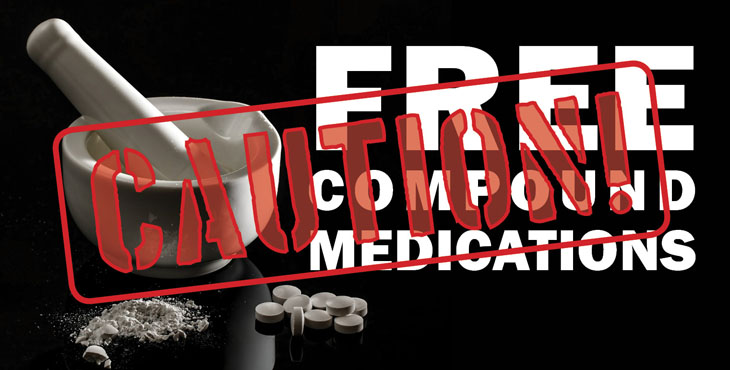VA has received multiple complaints from Veterans, beneficiaries and providers regarding unsolicited medical prescriptions from compounding pharmacies associated with VA Purchased Care Programs.
Solicitations are being made by phone, email and website advertisements in order to promote high-cost prescription compounding creams and supplements to unsuspecting Veterans and their beneficiaries. During these solicitations, requests are being made for a patient’s personal identifying information and personal health information, in order for the medications can be sent directly to the patient.
The technique of requesting personal identifying information is called “phishing” and usually involves cold-calling Veterans or beneficiaries in an attempt to deceive them into thinking a legitimate organization is requesting information. The cold-calling representative or salesperson will normally start the call by talking about a covered benefit for a prescription or other medication or supplement. The representative may also ask about other medical issues in order to increase the number of prescriptions and sales.
Finally, the representative may indicate the medications are being offered as a “free” benefit, even though some purchased care beneficiaries by law can be responsible for significant cost share — in some cases totaling thousands of dollars. In addition to cold-calling, similar phishing scams can also be in the form of unsolicited emails, website advertisements or even direct personal contacts.
VA’s guidance to Veterans and beneficiaries is to never give your personal identifying or personal health information to anyone, unless you know who you are giving it to and why they need it.
VA also advises that you please review all Purchased Care explanation of benefits for any excessive or unusual payments that may be associated with these compound medications.
Other government agencies have reported similar issues with compound prescription medications to include TRICARE, whose problems and concerns were documented in a recent CBS News report.
If you suspect fraud, waste or abuse associated with any VA Purchased Care medical claim, please report the issue to the Chief Business Office Purchased Care (CBOPC), Department of Program Integrity (DPI), using the instructions located on the CBOPC Fraud, Waste and Abuse FAQs Web page.
The Chief Business Office Purchased Care administers health benefit programs for Veterans and their family members. For more information, please visit our website at www.va.gov/purchasedcare/.
Shawn O’Neill joined the VA in May 2006 and currently works as a program integrity specialist in the Department of Program Integrity at the Chief Business Office Purchased Care. Prior to joining the VA, Shawn served more than 20-years in the U.S. Air Force, retiring as a Master Sergeant. Shawn has also completed certification as a professional medical coder.
Topics in this story
More Stories
Spinal cord stimulation implantation helps Veterans suffering from chronic pain improve their quality of life without narcotics.
After Addison’s Disease and lumbar spine surgery, nurse Veteran Gayle Smith re-learned how to ski. “You have more courage than you think.”
Follow these 10 winter safety tips to stay warm, safe and protected during the cold winter.







I have over 4years military experience.
I have applied for help via veteran benefits in hopes of receiving perhaps a monthly pension.
I sought help thru a vet advocate to be told it would be,at least, a year before I would
Receive any type of answer.What can I do to expedite matters…. My health issues have become
More demanding and challenging and that is why I ask about expediting matters.
Any help or suggestions would be greatly appreciated
Thanking you in advance.